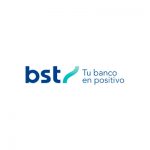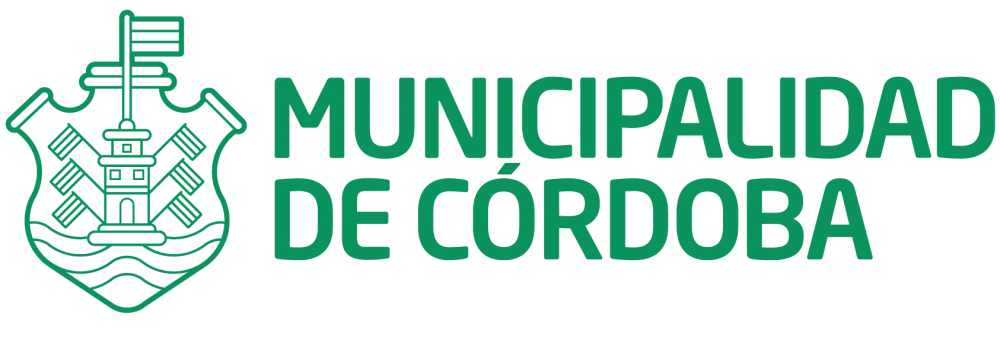Province of Chubut’s Series LX Treasury Notes Issuance for AR$ 302,871,153

Legal counsel to Puente Hnos. S.A., as placement agent in the issuance of Province of Chubut’s Series LX Treasury Notes (the “Treasury Notes Series LX”). The Treasury Notes Series LX are secured by certain rights of the Province of Chubut to receive amounts under the federal tax co-participation regime and were issued for AR$ 302,871,153, fixed annual nominal rate equivalent to 38.00%, due on February 18, 2021.
Legal Advice in the Issuance of Notes of Albanesi Group for US$43,801,193

Counsel to Generación Mediterránea S.A. issuance of Class XIII Notes for US$13,076,765 due February 16, 2024 issued in exchange of 66.37% of its outstanding Class X Notes due February 16, 2021, under its Global Notes Program for an amount of up to US$100,000,000.
Counsel to Generación Mediterránea S.A. and Central Térmica Roca S.A. in the co-issuance of Class IV Notes for US$16,354,944 due April 11, 2022 issued in exchange of 69.39% of their Class III Notes due April 11, 2021, and in the co-issuance by Generación Mediterránea S.A. and Central Térmica Roca S.A. of new Class V Notes for US$14,369,484 due November 27, 2022. Class IV Notes and Class V Notes were issued under the Global Notes Program for an amount of up to US$700,000,000.
The Class XIII Notes, Class IV Notes and Class V Notes are guarantee by Albanesi S.A.
SBS Capital S.A. acted as arranger agent, and SBS Trading S.A., Banco de Servicios y Transacciones S.A. and Banco de la Provincia de Buenos Aires acted as placement agents of Class XIII Notes and Class IV Notes.
SBS Capital S.A. acted as arranger agent, and SBS Trading S.A., Balanz Capital Valores S.A.U., Banco de Servicios y Transacciones S.A., Banco de la Provincia de Buenos Aires, Macro Securities S.A., Allaria Ledesma & Cia S.A., Adcap Securities Argentina S.A. and TPCG Valores S.A.U. acted as placement agents of the Class V Notes.
“RG Albanesi Serie XI” Financial Trust for U$S 13,000,000

Legal Advisors of the trustor Rafael G. Albanesi S.A. in the creation of the Financial Trusts Global Program “RG ALBANESI II” for an amount of up to U$S 100,000,000 (or the equivalent in other currencies) and in the issuance and placement in Argentina of U$S 13,000,000 “RG ALBANESI SERIES XI” Trust Securities, under the mentioned Programme. TMF Trust Company (Argentina) S.A. acted as trustee, Banco de Servicios y Transacciones S.A. acted as arrenger and placement agent; SBS Capital S.A. acted as arranger; and SBS Trading S.A., BACS Banco de Crédito and Securitización S.A. Banco Supervielle S.A., Banco de la Provincia de Buenos Aires, Balanz Capital Valores S.A.U., Macro Securities S.A. and Allaria Ledesma & Cía. S.A. acted as arrengers and placement agents.
Province of Chubut’s Series LIX Class 1 and Class 2 Treasury Notes Issuance for AR$ 644,266,000

Legal counsel to Puente Hnos. S.A., as placement agent in the issuance of Province of Chubut’s Series LIX Treasury Notes (the “Treasury Notes Series LIX”). The Treasury Notes Series LIX are secured by certain rights of the Province of Chubut to receive amounts under the federal tax co-participation regime and were issued in two classes amounting to AR$ 644,266,000. Class 1 has a fixed annual nominal rate equivalent to 37.50% and is due on December 18, 2020. Class 2 has a fixed annual nominal rate equivalent to 39.70% and is due on November 18, 2021.
Province of Chubut’s Series LVIII Class 1 and Class 2 Treasury Notes Issuance for AR$ 392,718,500

Legal counsel to Puente Hnos. S.A., as placement agent in the issuance of Province of Chubut’s Series LVIII Treasury Notes (the “Treasury Notes Series LVIII”). The Treasury Notes Series LVIII are secured by certain rights of the Province of Chubut to receive amounts under the federal tax co-participation regime and were issued in two classes amounting to AR$ 392,718,500. Class 1 has a fixed annual nominal rate equivalent to 34.50% and is due on November 20, 2020. Class 2 has a fixed annual nominal rate equivalent to 35.75% and is due on January 20, 2021.
Francisco Molina Portela New Partner of the Banking & Finance Department

Senior associate Francisco Molina Portela was promoted to partner. Francisco will lead the Banking & Finance Department together with Marcelo R. Tavarone, Federico Salim and Julieta De Ruggiero.
Francisco (35), joined the firm when it was founded in 2014. He concentrates his practice on capital markets transactions, project finance, debt restructuring and banking and securities regulation.
He obtained his law degree from Universidad de Buenos Aires (2011), and completed an LL.M in Banking and Finance Law (with distinction) at Queen Mary University of London in 2016. During 2017/2018 he worked as a foreign associate at Simpson Thacher & Bartlett in New York. He is also an assistant lecturer in Contract Law and Banking Law at the Universidad de Buenos Aires.
Marcelo R. Tavarone, Managing Partner of the firm said: “We are really pleased with Francisco’s promotion, the first associate of our firm to become partner. This promotion is a recognition to his ability and dedication. Since the foundation of TRSyM in 2014, our commitment has been to accompany our associates in their professional development, and Francisco’s promotion is the best example of this. It also reflects the continuous growth of our firm, despite the adverse context that Argentina and the world are going through. Francisco is part of the new generation of lawyers who will lead the future of the legal profession”.
Municipality of Cordoba’s Series XL Treasury Notes Issuance for AR$600,000,000








Legal counsel to the Municipality of Cordoba’s, as issuer, Banco de la Provincia de Córdoba S.A., as arranger and placement, and to Banco de Servicios y Transacciones S.A., Puente Hnos. S.A., AdCap Securities Argentina S.A., Banco de la Ciudad de Buenos Aires, Banco Hipotecario S.A. and SBS Trading S.A., as placement agents, in the issuance of Municipality of Cordoba’s Series XL Treasury Notes (the “Treasury Notes Series XL”), under the Municipality of Cordoba’s Treasury Notes Issuance Programme (the “Programme”). The transaction closed on October 2, 2020 and the payments due under the Treasury Notes Series XL are secured by certain rights of the Municipality to collect certain contribution charges over the commercial, industrial and services activity. The Treasury Notes Series XL were issued for AR$600,000,000 at an annual floating interest rate equivalent to Badlar plus 4.60%, due on June 29, 2021.
Province of Chubut’s Series LVI Treasury Notes Issuance for AR$ 176,363,700

Legal counsel to Puente Hnos. S.A., as placement agent in the issuance of Province of Chubut’s Series LVI Treasury Notes (the “Treasury Notes Series LVI”). The Treasury Notes Series LVI are secured by certain rights of the Province of Chubut to receive amounts under the federal tax co-participation regime and were issued for AR$ 176,363,700 fixed annual nominal rate equivalent to 34%, and is due on October, 23 2020.
Argentine Central Bank Mandates Companies to Refinance Debt
Pursuant to Communication “A” 7106 dated September 15, 2020, the Argentine Central Bank tightened currency controls.
According to the new regulation, private sector companies and financial institutions shall reprofile at least 60% of any payment of principal scheduled between October 15, 2020 and March 31, 2021 on any external financial debt (other than intercompany debt) and dollar-denominated local securities offerings.
A refinancing plan shall be filed with the Argentine Central Bank based on the following standards:
a) Argentine debtors shall be granted access to the foreign exchange market to purchase foreign currency to make payments of services of principal for up to 40% of the principal amount due on such period only; and
b) at least 60% of the principal amount due on such period shall be refinanced with a new external indebtedness with an average life of at least 2 years.
This shall not apply to: (a) indebtedness with international organizations or their associated agencies or guaranteed by them; (b) indebtedness granted by official credit agencies or guaranteed by them; or (c) payments of principal for an amount no exceeding USD 1,000,000 per calendar month.
The refinancing plan shall be filed before the following deadlines: (a) September 30, 2020, with respect any payment due before December 31, 2020; and (b) at least 30 calendar days before the relevant payment, with respect to any payment due between January 1, 2021 and March 31, 2021.
For more information, do not hesitate to contact Marcelo R. Tavarone, Federico Salim, Julieta De Ruggiero or Francisco Molina Portela.
Municipality of Cordoba’s Series XXXIX Treasury Notes Issuance for AR$600,000,000




![]()



Legal counsel to the Municipality of Córdoba, as issuer, Banco de la Provincia de Córdoba S.A., as arranger and placement agent, and to Banco de Servicios y Transacciones S.A., Puente Hnos. S.A., AdCap Securities Argentina S.A., Banco de la Ciudad de Buenos Aires, Banco Hipotecario S.A. and SBS Trading S.A., as placement agents, in the issuance of Municipality of Cordoba’s Series XXXIX Treasury Notes, under the Municipality of Cordoba’s Treasury Notes Issuance Programme. The transaction closed on September 3, 2020 and the payments due under the Treasury Notes Series XXXIX are secured by certain rights of the Municipality to collect certain contribution charges over the commercial, industrial and services activity. The Treasury Notes Series XXXIX were issued for AR$600,000,000 at an annual floating interest rate equivalent to Badlar plus 4.47%, due on March 2, 2021.



